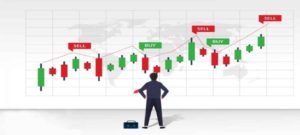Although it is important to understand the market and trading systems, more important is the mentality of the trader: how he manages his emotions and how to deal with losses. Buyers are likely to call everybody who looks fitting in the event that there are as it were a number of. Fear, confusion, anger, greed, frustration – you tell it. The perception and foundation of a business customer are highly dependent on the outcome of its transactions, which can affect their overall success.
When a trader enters a cycle of bad transactions and unprofitable penalties, it can be difficult to get out of it and manage the situation effectively. Let’s take a look at the factors that shape a trader’s opinion and see what he can do to improve it.
Understand fear
Fear of loss arises from understanding. However, it is extremely painful because it deprives the entrepreneur of the opportunity to make the right decision and can cause fear, anger, and frustration. It is important to understand that fear is a normal response to a threat. Fear does not always reflect the gravity of the situation: fear is often exaggerated and unnecessary.
Another type of fear is FOMO, fear of loss. This forces the entrepreneur to make quick decisions for fear of not taking advantage of what everyone around them seems to be doing. FOMO traders can trade more because they do not understand the market and their choices cause anxiety and uncertainty.
Fight with greed
Another big greed is the measure of a businessman’s emotions. This desire encourages traders to take as much risk as possible, for example, a successful business continues until the situation changes and the results change. When greed is strong, it can be catastrophic.
Fighting greed is not easy and is rarely completely controlled. ” “In the event that I open another commerce, I can accomplish way better comes about! As always, the thought will arise. However, recognizing and reflecting such thoughts is a step towards an advanced marketing system.
How do you agree?
Emotion management is a job that should be a priority. To keep a mental transaction healthy, you need to create a set of rules and follow them. Such rules may include objectives such as risk management measures such as the end result of the trader’s objectives, loss prevention, and business balance. It can contain details of a business plan explaining the terms of entry and exit. You can set the amount of damage and the desired result for one day.
Such rules can help an entrepreneur determine the importance of a particular role, which can be a guide in times of emotional turmoil. In times of fear or greed, it may be wise to follow the rules and evaluate the merchant’s preferences rather than a written plan.
What else can be done?
In addition to setting rules, traders can track their work and evaluate it in a timely manner. It can also help you find out about your emotional state as it allows you to plan for future negative emotions. Go back to the trading process and apply the current method to the efficient method used by most traders.
Gaining professional trading skills can also help control bad behavior – new traders may want to spend more time on it. Market research. This will help them gain more confidence and reduce stress.




